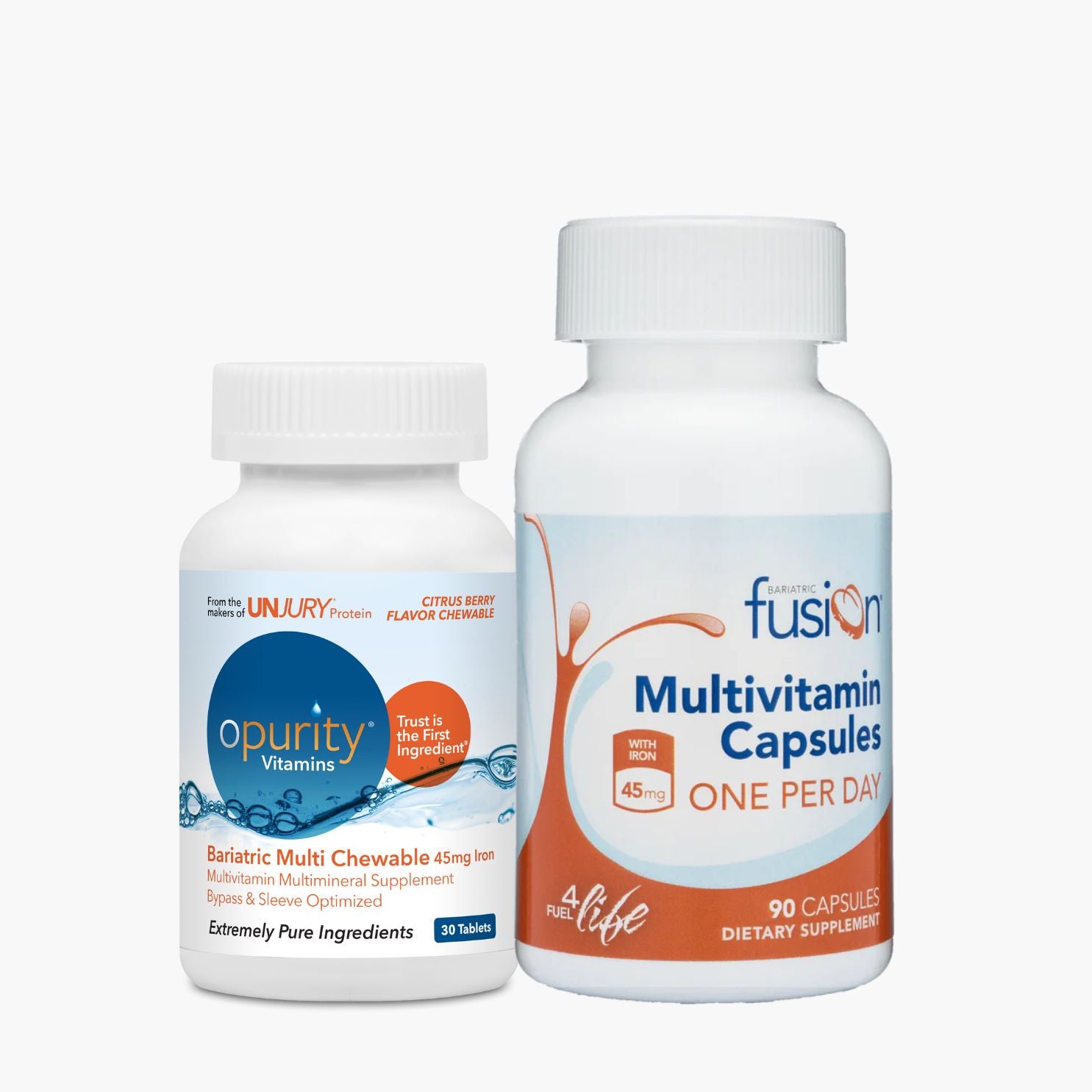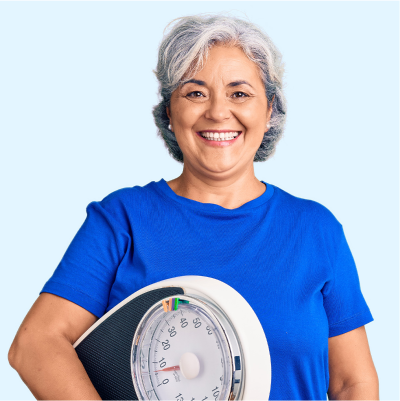Serious Questions about PatchMD™ Vitamin Supplement Claims
In the Winter of 2015 we posted serious questions about PatchMD™ Vitamins. Specifically:
- In our informal testing, the PatchMD™ Multivitamin Plus Topical Patch - the entire patch including the adhesive, and the backing and the vitamins -- actually weights only a small fraction of the weight of the vitamins and minerals they claim to provide. It’s like claiming to have a gallon of coffee in a pint-sized coffee cup. To our common-sense thinking, that is physically impossible. NOTE: we didn't do an exhaustive test with lots of samples, and you should read this link to form your own conclusion.
Individuals who have had weight loss surgery are medically vulnerable patients. PatchMD™ is claiming that their patch contains nutrients that generally equal or exceed the DV, and that the PatchMD™ multivitamin “could” be a suitable solution for bariatric patients. * However, the weight of the patch itself suggests nutrient levels that are completely inconsistent with ASMBS recommendations. Because we continue to see and hear questions from worried patients and professionals, we recently reordered the Patch MD™ Multivitamins, and conducted that informal test again, and the results were similar:
Recent Informal Test Results: The Patch Weighs a Lot Less than the Weight of the Nutrient Claims
| Average Weight of Entire Patch | Claimed Weight of Nutrients per Serving (on package label) ** |
|---|---|
| Approx. 80 mg | 3,620 mg |
* https://www.PatchMD™.com/Gastric-Bypass-Weight-Loss-Surgery-Limits-Vitamin-Absorption-Could-PatchMD™-Be-The-Secret-To-Better-Nutrition-_b_9.html as of June 27, 2017, 10:41 AM EDT. ** Note that while the PatchMD™ website, as of June 27, 2017, 10:44 AM EDT claims 10,000 mg Vitamin C as ascorbic acid, the package we purchased claims 1,000 mg. We used the lower number, 1,000 mg, in calculating the 3,620 mg Claimed Weight above. We urge Patch MD™ to come forward and explain how it’s possible to fit 3,620 mg of nutrients into a patch weighing approximately 80 mg, total. According to basic laws of science, it is impossible. More important discussion continues below: We were careful, but we realize the sample could have been unrepresentative (again), or we could have made errors weighing or calculating (we did informally calibrate our scale by weighing US coins, and the scale weight was close to the standard weight of the coins). However, the results were more than questionable enough to warrant high caution and more investigation. Knowing what we know, we believe it is our obligation as a trusted partner to the bariatric community to relay these findings. And, since supplements are NOT regulated by the FDA, it is that much more important to question ingredients and claims to protect overall health. Vitamin patch supporters cite nicotine, birth control and other medications used as prescribed treatments via patch to bolster their case, but the major difference is that the highly specialized transdermal medication patches available via prescription contain only MINUTE amounts of drugs. Note that research on patches designed to deliver prescription pharmaceuticals indicates that results are better when the active ingredients are lipid-soluble. This certainly raises our concern that the efficacy of patches delivering water-soluble vitamins and minerals might be limited. Where is the research to support the promises being made to these medically vulnerable patients? Others may argue that the patches must work because certain patients are not complaining of problematic bloodwork results, but the facts remain that:
- It can take a year or more for deficiencies to surface.
- Not all lab work measures the status of all potentially deficient micronutrients
- Some patients find it challenging to keep all follow up appointments post-surgery, so not all scheduled testing is completed
Finally, we know that a graduate student is doing a study of the Patch MD™ Multivitamin patch. We understand that the metrics chosen for success are not representative of the entire patch. The study, based on a description at: https://clinicaltrials.gov/ct2/show/NCT02686905, is looking, in part, at “the efficacy of transdermal supplement patches on treating nutrient malabsorption and deficiency in post-op bariatric patients…” However, the study doesn’t measure efficacy for all nutrients; it is limited to a very basic set of routine labs taken at baseline and compared to lab test results taken 3-months post-surgery. We understand the study will examine fasting blood glucose and only a limited list of nutrients; some of which include Calcium, Ferritin, Vitamin B12 and Vitamin D. For what’s included in the study, there are concerns about what will be learned:
| Nutrient being measured | Concern(s) |
|---|---|
| B12 | Patients have stores which can last as long as 3 years. Measuring after only 3 months is insufficient to fully determine patch effectiveness. |
| Vitamin D | The study appears to be based in Southern California. If all of the respondents reside in Southern California, the potential year-round exposure to the sun is a confounding variable, possibly reducing deficiencies that might otherwise occur. |
| Ferritin | Because obesity is an inflammatory disorder, obese patients are more likely to have higher ferritin already due to inflammation; thus, that reading might not reflect true iron status. |
| Calcium | Serum calcium does not reflect calcium status – how much calcium is in the bones. |
| Blood Glucose | Multivitamins are not the primary determinant of blood glucose. |
If your healthcare practitioner recommends a vitamin patch to you, ask:
- What research he or she can provide regarding the validity of effectiveness claims and Daily Value (DV) percentages?
- Ask them to explain the question of the weight of the claimed amounts, vs the weight of the patch.
Clearly more testing is needed, and we are anxiously awaiting further data. We remain committed to educating patients and sharing information with professionals, so we will continue to review products and research and keep you updated.











